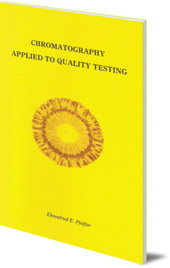Quick Look
An overview of all aspects of chromatography, as well as detailed accounts of various tests, studies and trials to determine the quality of soils and compost, and particular plants.
Description
Chromatography is a widely-used scientific technique used to separate complex compounds into their components. Ehrenfried Pfeiffer, a respected chemist and pioneer of biodynamics, developed a specific chromatographical method which produces a picture (a 'chromatogram') which shows the quality of a substance or organism. The technique can be usefully applied to research in areas such as agriculture, nutrition, soils and composts.
This pamphlet, which includes 56 colour chromatograms, offers an overview of all aspects of chromatography, as well as detailed accounts of various tests, studies and trials to determine the quality of soils and compost, and particular plants.
Author
Ehrenfried Pfeiffer (1899-1961) was born in Munich. He visited the USA several times in the 1930s, was awarded a doctorate for his groundbreaking Sensitive Crystallisation theory as a blood test for detecting cancer, and emigrated there in 1940. He pioneered biodynamic agriculture in the USA and helped found the Biodynamic Farming & Gardening Association. He died in Spring Valley, New York.
Links
Other books by biodynamic pioneer Ehrenfried E. Pfeiffer:
Pfeiffer's Introduction to Biodynamics
Soil Fertility, Renewal and Preservation
Weeds and What They Tell Us
The Biodynamic Treatment of Fruit Trees, Berries and Shrubs
Biodynamics: Three Introductory Articles
The Earth's Face: Landscape and its relation to the health of the soil

